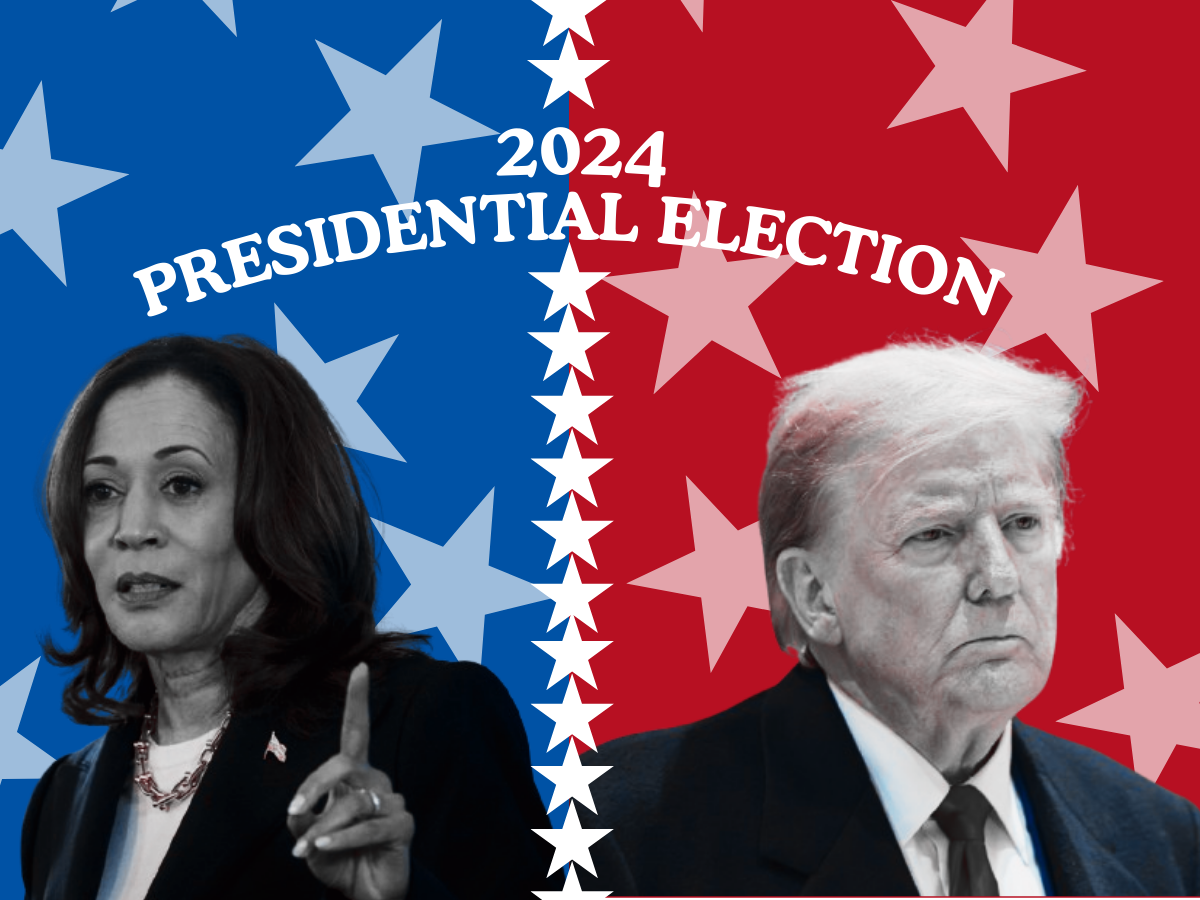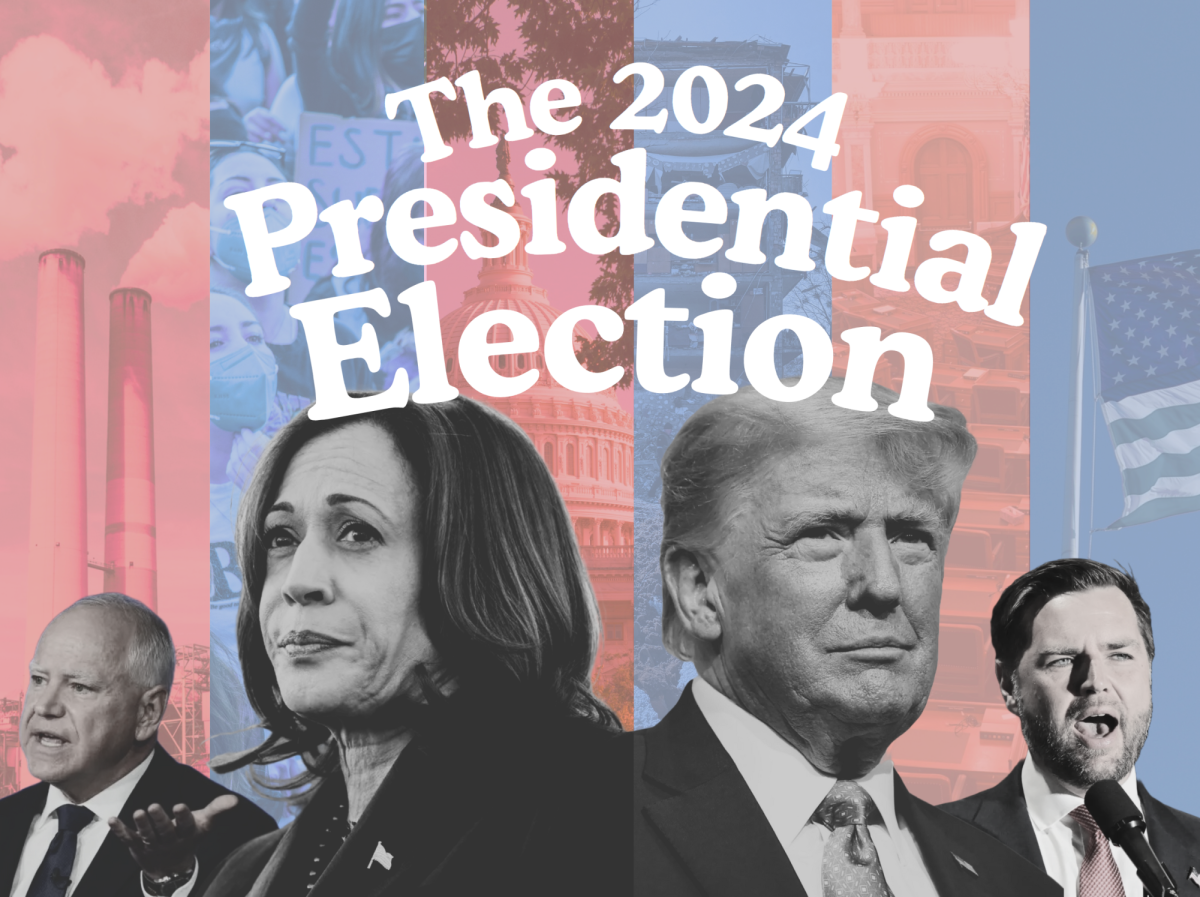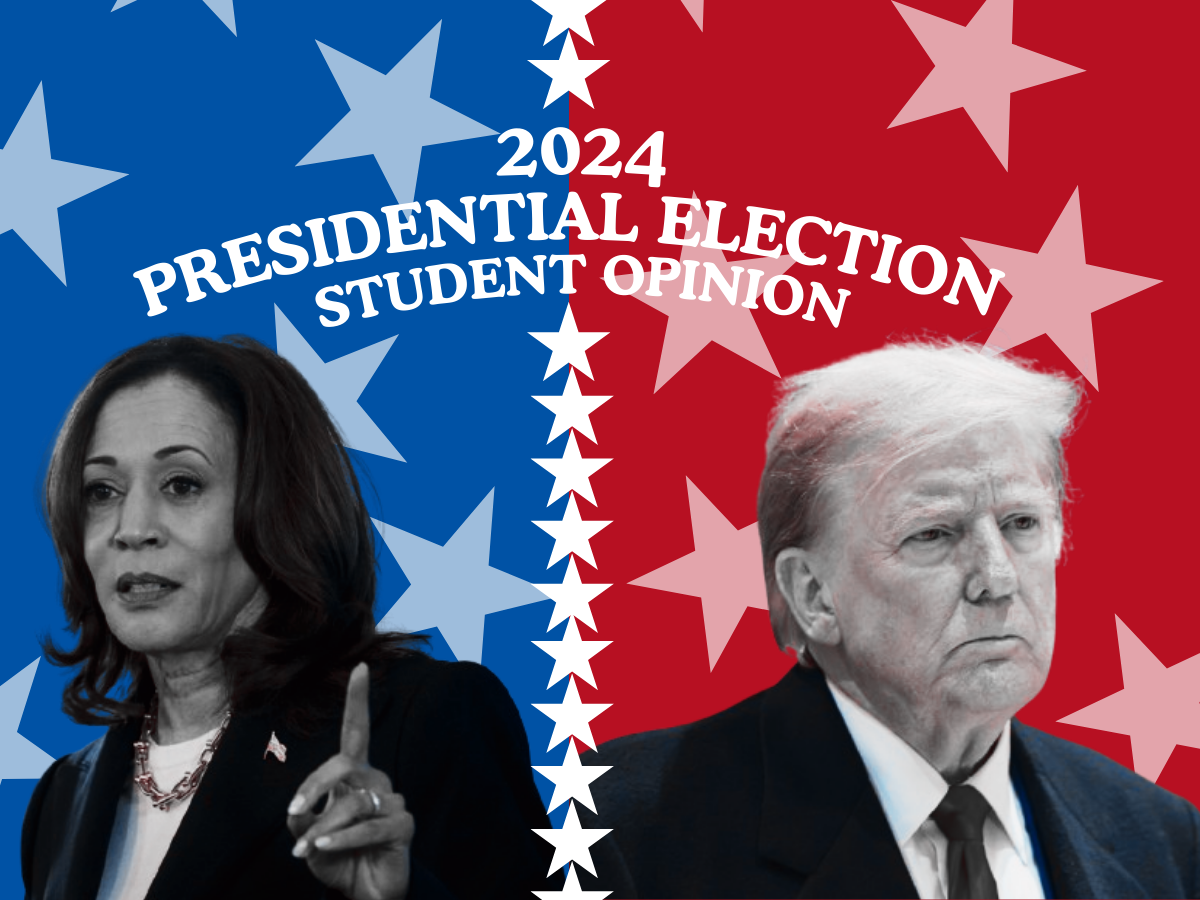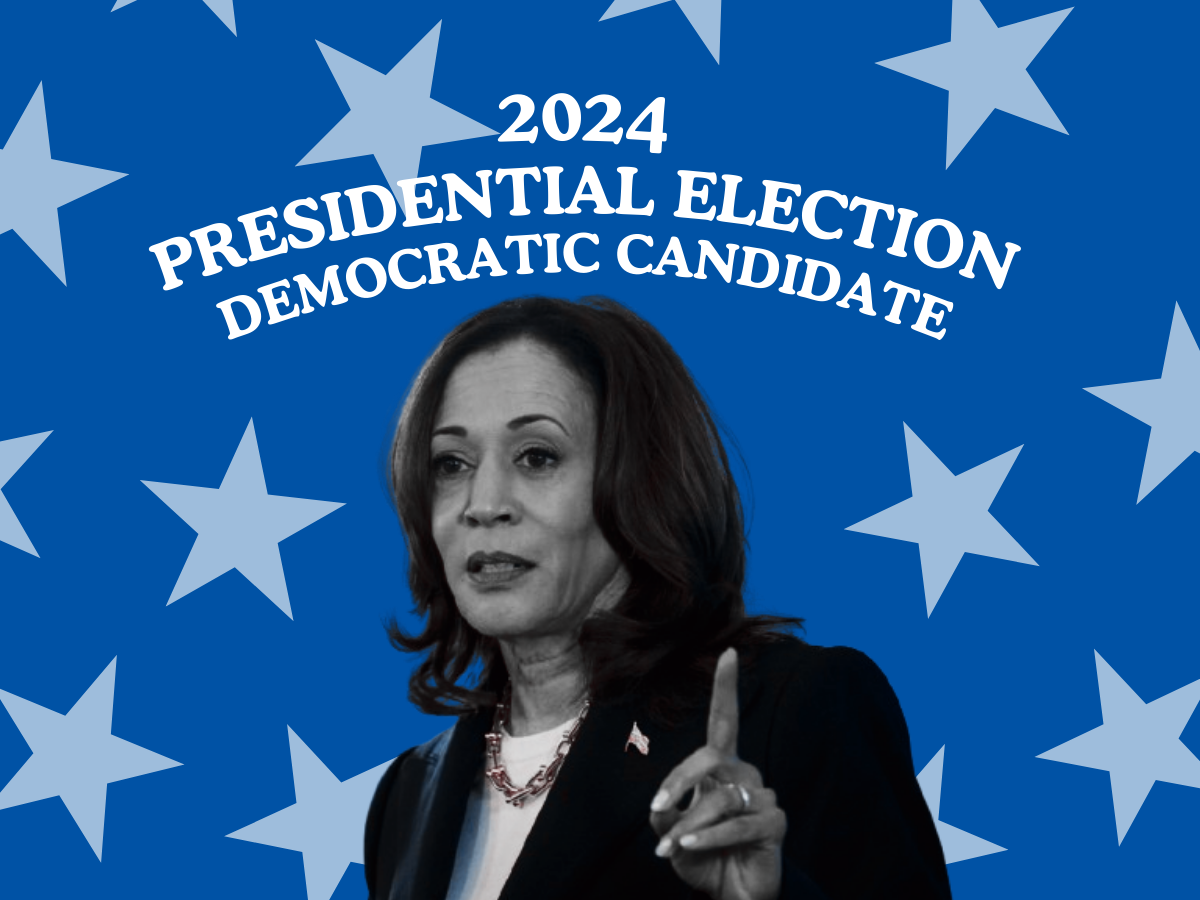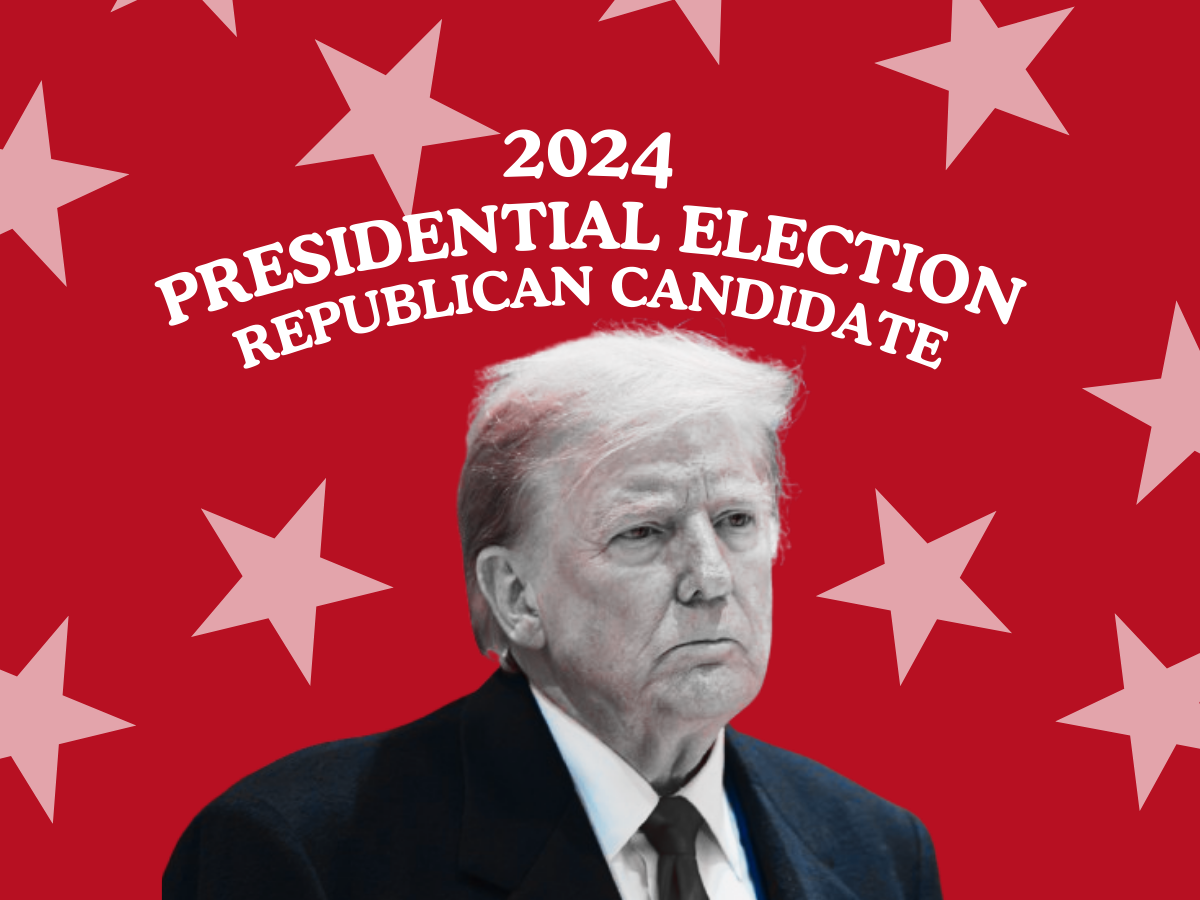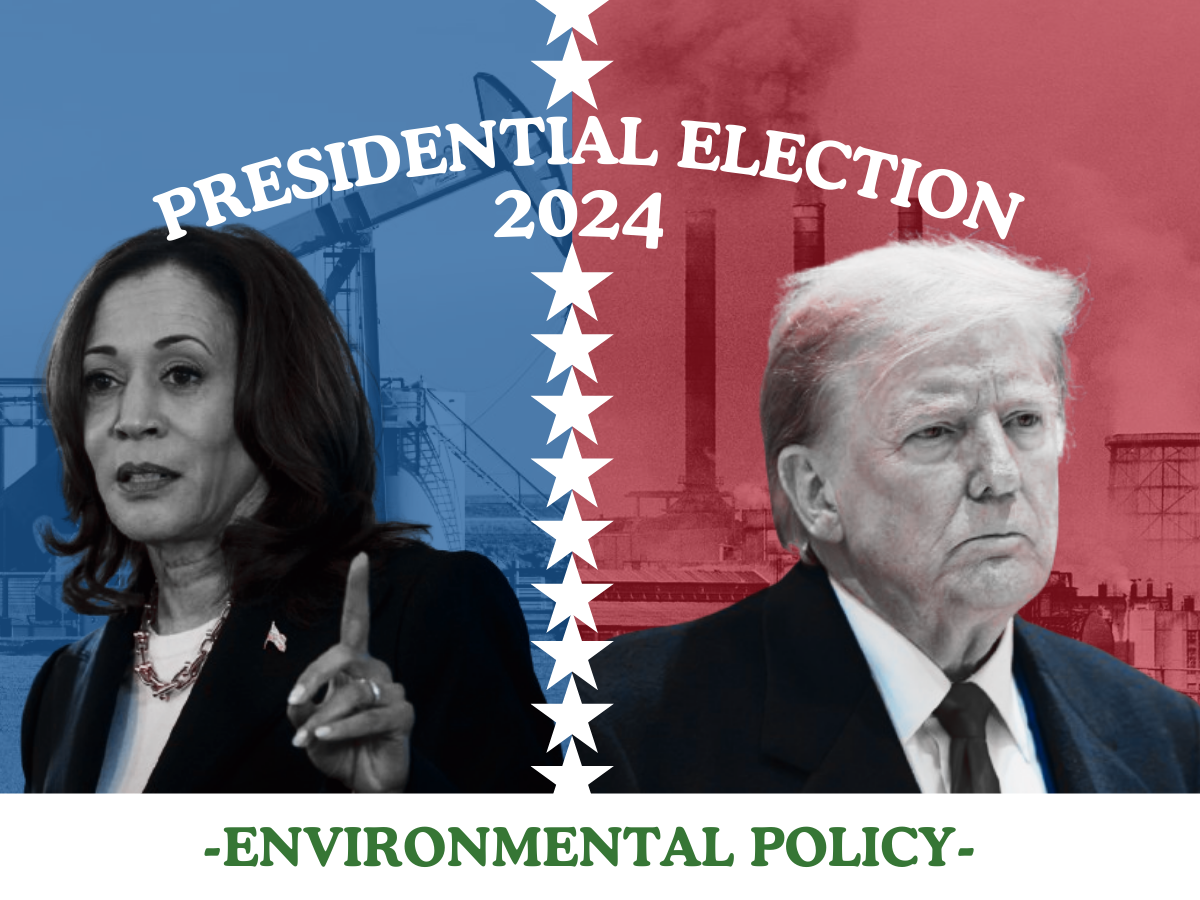2024 U.S. Presidential Election: Reproductive rights
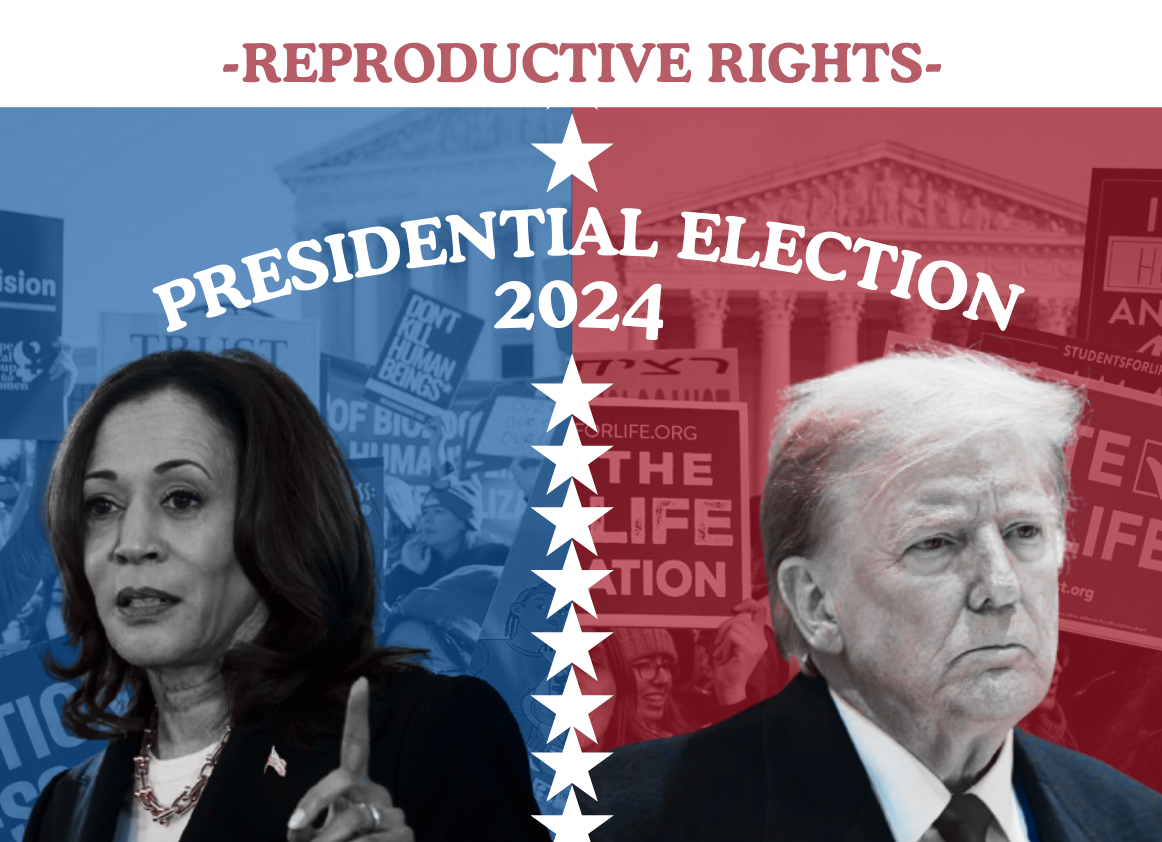
This article is a continuation of the 2024 Presidential Election series that delves into all facets of the 2024 Presidential Election, held on Nov. 5, 2024. If you are curious about student opinions at Foothill Technology High School (Foothill Tech), presidential candidates or campaign maps, this series is for you.
Abortion and reproductive rights have become a hot topic in recent months as the 2024 presidential debate looms near. In the 2022 Dobbs v. Jackson Women’s Health Organization Decision, the U.S. Supreme Court (SCOTUS) overturned Roe v. Wade, ruling that the right to an abortion is not constitutionally protected. As a result, 13 states have enforced total abortion bans, and a new wave of “single-issue” voters have been vocal on the topic. These individuals are basing their vote on the ideas of pro-life or pro-choice, which supports a woman’s right to choose to have an abortion. With conflicting ideologies on each side, this election may influence reproductive rights in America. Thus, it is important to understand where both presidential candidates stand on the issue.
Donald Trump (R):
Trump’s official and most standing policy on abortion is that it should be up to the individual states. He played an instrumental role in the Dobbs v. Jackson Women’s Health Organization, the court case that overruled Roe v. Wade in 2022. In place since 1973, Roe v. Wade was the decision of SCOTUS that protected women’s right to have an abortion under the 14th Amendment of the Constitution. Due to the three justices that Trump appointed in his first term, including Neil Gorsuch, Brett Kavanaugh and Amy Coney Barrett, SCOTUS voted to void and overrule the decision made almost 50 years prior. When asked about his role in the ruling, Trump told Fox News that, “God made the decision.”
For a potential second administration, Project 2025 is the conservative agenda that details a pro-life stance. While Trump denies his involvement, many of his close administration officials have been tied to the 900-page document, including his Vice President candidate, J.D. Vance. Project 2025 has been deemed the “right-wing wish list” for a second Trump administration that includes stances on the economy, immigration and education. In terms of reproductive rights, the agenda would most greatly affect the eradication of medication abortion.
Project 2025 mentions abortion over 200 times, reflecting the large debate it has had in recent media. To be clear — the agenda does not call for a nationwide ban on abortion, nor does Trump say he intends to sign this into law. However, it supports extensive regulations on abortion, particularly ending medical abortions by stating that due to SCOTUS’ overturning of Roe v. Wade, they should, “therefore announce its intent to enforce federal law against providers and distributors of such pills.” This would include the Food and Drug Administration reversing its 24-year-old approval of the abortion pill mifepristone, as well as reviving the 1873 law known as the Comstock Act to ban any abortion medications, equipment or materials from being sent through the U.S. Postal Service.
In recent weeks, however, Trump stated in a Fox News town hall that some abortion laws are “too tough” and need to be “redone.” While he didn’t mention specified states where said laws are too much, his words played at winning the vote of women who felt skeptical about his views. “It’s clear from his latest lies and flip-flopping on abortion that Donald Trump is scared — and he should be,” Jessica Mackler, president of EMILY’s List said. This moderate stance has been criticized by individuals on both sides. By standing in the middle, Trump has lost some social conservatives, yet has not seen a rise in moderate voters. “This has killed the enthusiasm of Trump’s own base,” Lila Rose, an anti-abortion activist stated on X.
Similarly, Trump has further stances on in-vitro fertilization (IVF). In an interview with NBC News, Trump talked about how not only does he intend to protect access to IVF, but ensure that either the government or insurance companies will cover the cost of IVF treatment. The main reason IVF was under attack, however, was due to Trump’s influence in the overturning of Roe v. Wade. Earlier this year, the Alabama State Supreme Court ruled that embryos created through IVF were considered people, leading to the state’s main fertility clinics pausing their IVF care. “Trump’s stance could put him at odds with anti-abortion-rights advocates who oppose certain parts of the IVF process that involve discarding unused embryos,” stated NBC News.
Kamala Harris (D):
Consistent with the Democratic Party’s historically pro-choice stance on abortion, Kamala Harris is committed to restoring Roe v. Wade and, “… going back to where we were before the Dobbs decision,” Harris said in an interview with Politico.
Harris has been an advocate of reproductive protections throughout her career. As California Senator in 2017, she co-sponsored legislation that, if enacted, would have restricted states from banning abortion. In response to the Dobbs v. Jackson decision, Vice President Harris delivered a speech stating, “… across our nation, we witnessed a full-on assault state by state on reproductive freedom.”
In the months leading up to the November election, Harris has continued to be outspoken on her commitment to making mifepristone, an FDA approved abortion pill, accessible across the country — even in states with abortion bans.
In June, the supreme court sided with the Biden-Harris administration on preventing mifepristone restrictions, and Harris has leveraged this in her current presidential campaign. Confirming this staunch dedication, Harris’ campaign has also been endorsed by organizations dedicated to reproductive rights such as Planned Parenthood and EMILY’s List.
While propelled by her connection to the Biden administration’s pro-choice successes, Harris has clearly distinguished her own campaign from that of president Joe Biden. Biden, who is a devout Catholic, leaned heavily into other aspects of health care, such as giving Medicare the power to negotiate drug prices which was a landmark policy of his administration.
In various public speeches and debates, both Harris and Tim Walz, her vice president running mate, back the campaign’s pro-choice policies with evidence of American women suffering from the implications of state abortion bans. They have emphasized instances of women being forced to endure serious health complications or carry to term fetus’ conceived through rape or incest. However, at the root of the Harris campaign’s message is the belief that the government does not have the right to interfere with private health decisions. Likewise, the decision to have an abortion should be solely up to a woman and her doctor.
While abortion is a main topic on the ticket this November, the Harris-Walz administration also plans to push women’s health policy on a broader scale by protecting access to contraceptives, IVF and maternal health. This will include widespread insurance coverage of fertility assistance, funding for women’s health research, and continuation of the maternal health hotline which was launched by the Biden-Harris administration.



